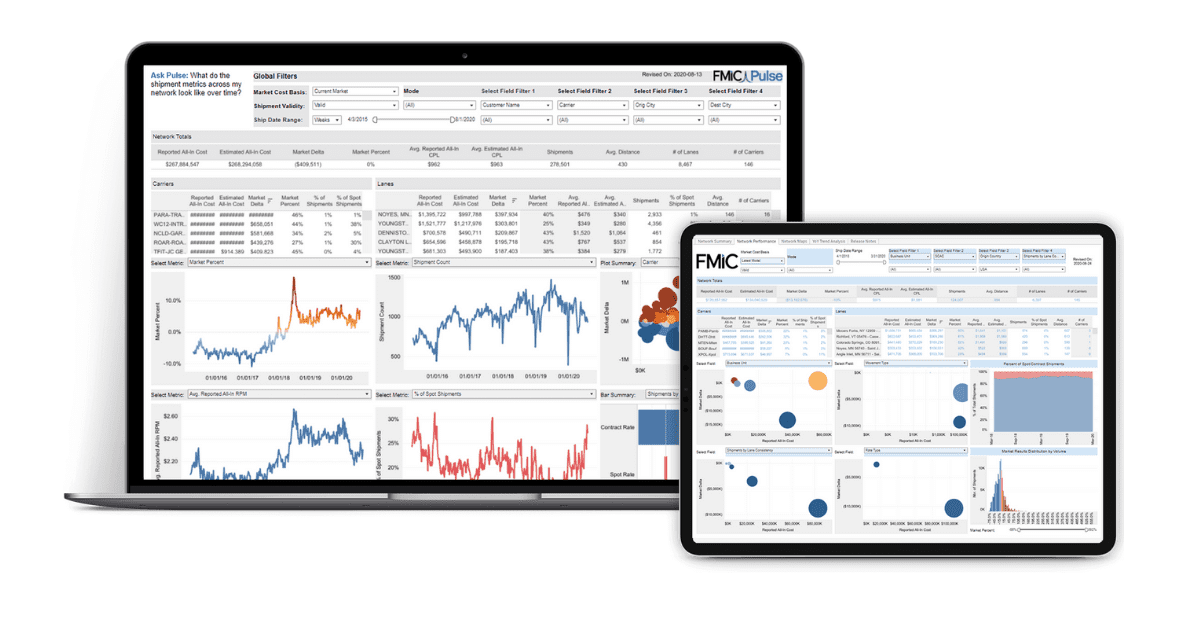In the volatile truckload freight marketplace, transportation costs can change rapidly. And when the spot market surges, like we’ve seen during the coronavirus pandemic, truckload capacity can be hard to find.
Mini-bids are opportunities to re-assess transportation spending based on changing market dynamics in specific areas of your freight network. Mini-bids focus on more agile procurement processes often used to address new or problematic lanes within a network, helping shippers find more reasonable rates than the spot market.
Read “Maximize Your Mini-Bid” to learn more about using data to inform your procurement strategies.
Experts widely expect this trend to continue growing in popularity, even after the pandemic wanes, and the overall economy and supply chain begin to return to normal.
This approach is also important because annual contracts are not binding documents, but instead a general agreement that shippers plan to tender a certain volume of freight that carriers will move at an agreed-upon rate. Even though there are no penalties for either party if the contracted volumes aren’t met, these annual contracts have long served as reliable agreements, allowing each side to better plan for the year ahead.
However, during sudden capacity spikes, the fact that annual contracts are not binding becomes crucial. When tight capacity drives rates up and gives carriers more lucrative options on the spot market, some carriers will refuse to honor lower contract rates, presenting risks to transportation budgets.
Mini-bids in action
That is exactly where mini-bids come into play — a “reverse auction” covering runs on a small number of lanes where capacity imbalances are most prominent and primary carrier rejection rates are highest. Depending on the scenario, mini-bids may be run weekly, monthly or quarterly. They can be focused on new lanes to support freight network expansion, or existing lanes that are falling out of your routing guide and overextending your budget.
Many shippers prioritize these mini-bids strictly for their current asset-based carriers, narrowing the field and making the process easier to navigate.
To learn more, read “Maximize Your Mini-Bid: How Short-Term Contracts Produce Long-Term Benefits.”


